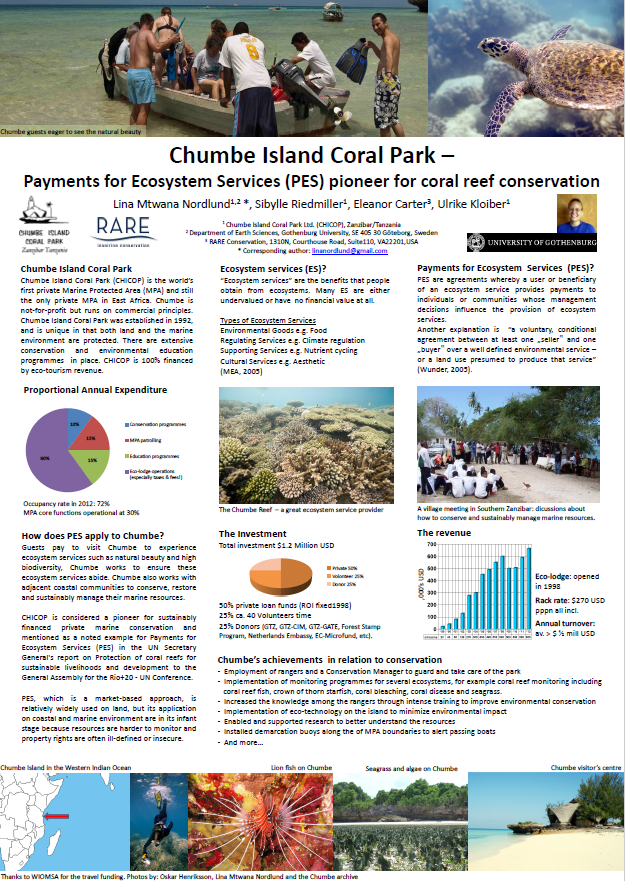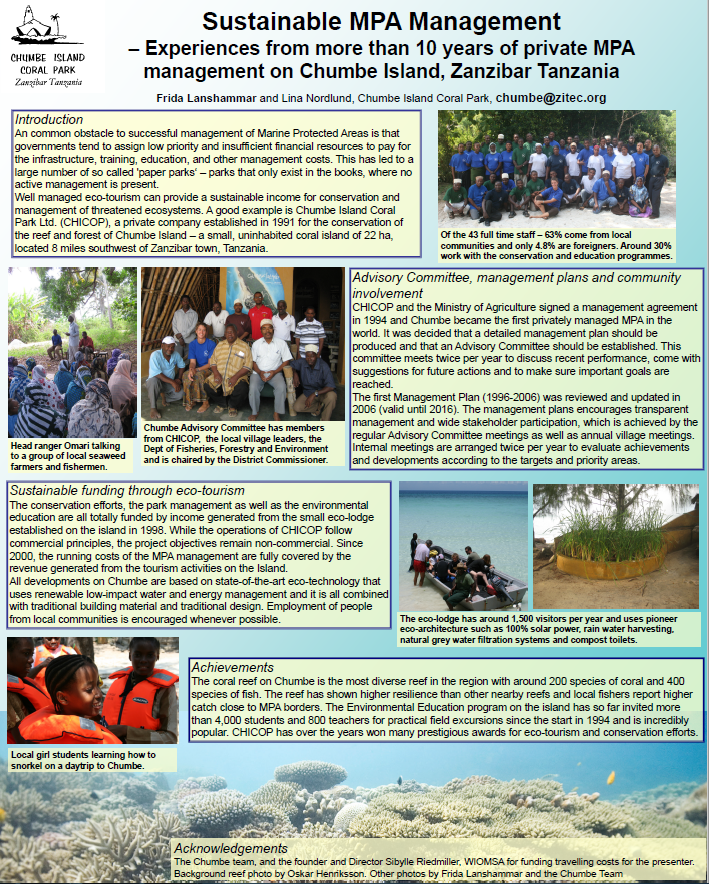


From 1991-1994 Chumbe Island Coral Park Limited (CHICOP) successfully negotiated with the semi-autonomous government of Zanzibar, Tanzania for the western coral reef and forest of Chumbe Island to be gazetted as an MPA, with management of the MPA entrusted to CHICOP. The company was specifically established for the purpose of developing and managing the MPA financially self-sustainably, utilizing ecotourism to generate revenue for all MPA operational costs and associated conservation, research and education activities. Through this Chumbe became the first managed marine park in Tanzania, the first privately managed MPA in the world, and to date is one of the only financially self-sustainable MPAs globally. The company objectives are not-for-profit, implementing conservation and education initiatives over more than 20 years under the framework of two management plan iterations that were developed with wide stakeholder participation (1995-2005 and 2006-2016). Ecotourism business operations follow commercial principles for maximizing revenue and promoting cost-effectiveness to ensure a sustainable revenue stream for MPA activities, exemplifying a successful business-oriented approach to sustainable and effective MPA management.
- Adoption of a liberalization policy allowing foreign investment back into the country, in particular in the tourism sector
- Investment Protection Act passed in 1989, and the Zanzibar Investment Agency established in 1991 to screen investment proposals
- Investor's commitment, determination, project management experiences in Tanzania and private capital to launch the initiative
- Availability of professional & committed volunteers
- Availability of donor funds for non-commercial project components
- Private management of an MPA can be effective and economically viable, even in a challenging political environment
- There is a clear market in the tourism industry for state-of-the-art eco-destinations that support strict conservation and sustainability principles
- No need for compromise! Private management has strong incentives to achieve tangible on-ground conservation goals, co-operate with local resource users, generate income, be cost-effective and keep overheads down
- Investment in conservation, environmental technologies & the employment of operational staff for park management and education programs, raises costs considerably, making it more difficult to compete with other tourist destinations. Favorable tax treatment could encourage such investments, but is not granted in Tanzania
- Investment security is limited by land tenure being available only through leasehold, while land leases can be revoked by the State with relative ease, thus weakening long-term security of tenure